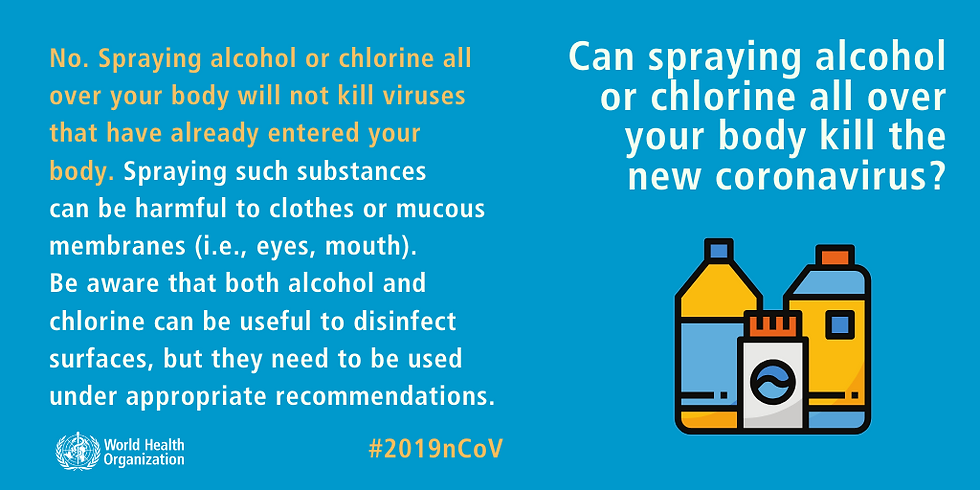How COVID-19 Spreads:
When someone who has COVID-19 coughs or exhales they release droplets of infected fluid. Most of these droplets fall on nearby surfaces and objects - such as desks, tables or telephones.
People could catch COVID-19 by touching contaminated surfaces or objects – and then touching their eyes, nose or mouth. If they are standing within one meter of a person with COVID-19 they can catch it by breathing in droplets coughed out or exhaled by them.
In other words, COVID-19 spreads in a similar way to flu.
Most persons infected with COVID-19 experience mild symptoms and recover. However, some go on to experience more serious illness and may require hospital care.
Risk of serious illness rises with age: people over 40 seem to be more vulnerable than those under 40. People with weakened immune systems and people with conditions such as diabetes, heart and lung disease are also more vulnerable to serious illness.
Health Workers Should:
• Follow established occupational safety and health procedures, avoid exposing others to health and safety risks and participate in employer-provided occupational safety and health training
• Use provided protocols to assess, triage and treat patients
• Treat patients with respect, compassion and dignity
• Maintain patient confidentiality
• Swiftly follow established public health reporting procedures of suspect and confirmed cases
• Provide or reinforce accurate infection prevention and control and public health information, including to concerned people who have neither symptoms nor risk
• Put on, use, take off and dispose of personal protective equipment properly
• Self-monitor for signs of illness and self-isolate or report illness to managers, if it occurs
• Advise management if they are experiencing signs of undue stress or mental health challenges that require support interventions
• Report to their immediate supervisor any situation which they have reasonable justification to believe presents an imminent and serious danger to life or health.





Carbyne:
Free Coronavirus Monitoring to 911
Mar 25, 2020 01:00 PM EDT
See how ECCs can monitor the Coronavirus through technology. This is not a sales pitch, but an offer of free access to a NG9-1-1 technology that can help you and your agency right now during this pandemic.

